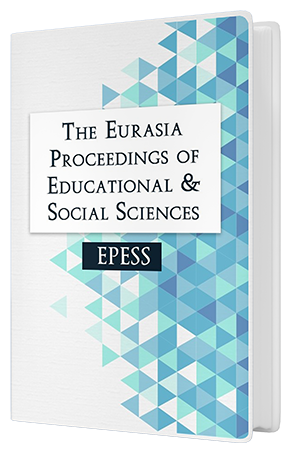FINANCING OF SMALL AND MEDIUM ENTERPRISES – CASE OF MACEDONIA
Keywords:
Microfinance, Small and Medium Enterprises (SME), lending, banks, business support agencyAbstract
This paper is prepared in a clear structure, in order to clarify in details microfinance, as a method for SMEs in accessing financing sources. At the beginning microfinance has been developed as an opportunity to help poor people lift themselves out of poverty. The most important thing is that microfinance helps people to open new businesses and with that improve economic and social condition of the society. It is done knowing the great need for access to financial resources, and also for other ways of support, either informal or nonfinancial methods. In this study, the importance is given to the development of microfinance in Macedonia, it is about the stages that have been performed and the results so far achieved. Knowing the methods of financing SMEs in other countries, the main issues that we have analyzed are the sources and methods of financing SMEs in Macedonia. In order to make the evaluation of these factors, we have used regression analysis on three variables.Finally there are presented the results obtained from empirical analysis, where we have analyzed the amounts of credits allocated to SMEs, the number of active enterprises, and the change of interest rates for SME loans, all these are made for a period from 2004 - 2012 (divided into quartiles). The results clarify the impact of credits and interest rates on the existence of SMEs and the opening of new enterprises in Macedonia. To our bad luck, the obtained results do not match with the results of other countries, while the reason is explained at the end of the study.Downloads
Published
Issue
Section
License
Copyright (c) 2016 The Eurasia Proceedings of Educational and Social Sciences

This work is licensed under a Creative Commons Attribution-NonCommercial-ShareAlike 4.0 International License.
The articles may be used for research, teaching, and private study purposes. Any substantial or systematic reproduction, redistribution, reselling, loan, sub-licensing, systematic supply, or distribution in any form to anyone is expressly forbidden. Authors alone are responsible for the contents of their articles. The journal owns the copyright of the articles. The publisher shall not be liable for any loss, actions, claims, proceedings, demand, or costs or damages whatsoever or howsoever caused arising directly or indirectly in connection with or arising out of the use of the research material. All authors are requested to disclose any actual or potential conflict of interest including any financial, personal or other relationships with other people or organizations regarding the submitted work.




